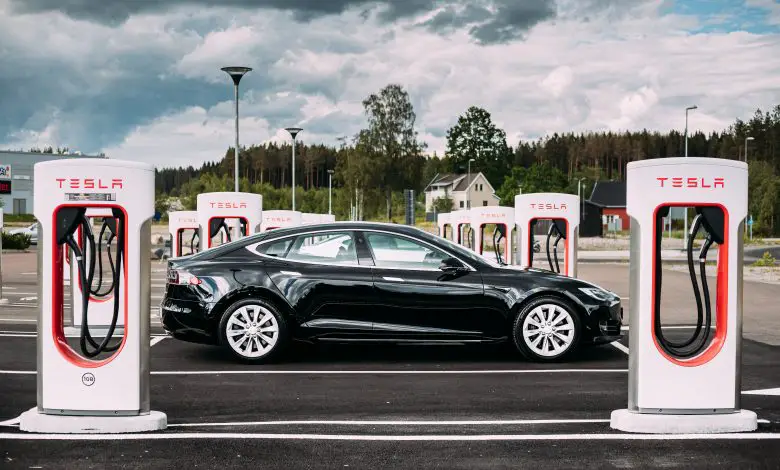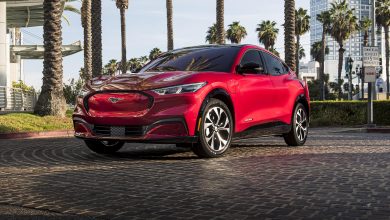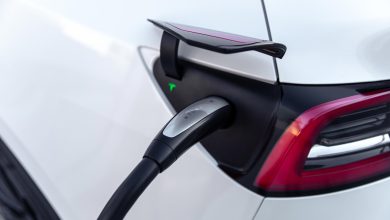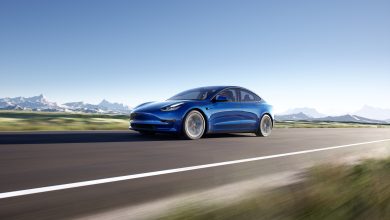More Tesla, GM, Ford EVs Qualify For Tax Credit
EV NewsTreasury Department’s Revision Leads to Lower Prices

The United States Treasury Department revised its vehicle classification definitions on Friday, February 3, 2023. The move will see more electric vehicles from Tesla, General Motors, Ford Motor, and Volkswagen qualify for up to $7,500 of the federal tax credit.
The reclassification is a win for EV makers that have pushed for the Biden administration to change the vehicle definitions. According to the August 2022 approved climate bill worth $430 billion, SUVs have to be priced at under $80,000 to qualify while sedans, cars, and wagons must be priced at $55,000 or below.
With the announcement from the Treasury on Friday, cars automakers consider crossover SUVs will qualify for the tax credit if they are priced at $80,000 or below. The announcement opens the door for Tesla’s five-seat Model Y, GM’s Cadillac Lyriq, Ford Mustang Mach-E, Volkswagen’s ID.4, and Escape Plug-in Hybrid to get a tax credit if their retail price is not over $80,000. Before now, only one EV from Volkswagen was considered an SUV.
“To make it easier for consumers to know which vehicles qualify under the applicable MSRP cap, Treasury is updating the vehicle classification standard to use the consumer-facing Environmental Protection Agency (EPA) Fuel Economy Labeling standard, rather than the EPA CAFÉ (Corporate Average Fuel Economy) standard,” said the Treasury Department in the Friday statement. “This change will allow crossover vehicles that share similar features to be treated consistently.”
However, a vehicle may qualify for a tax credit and the buyer may not qualify based on their income. While the new definition by the Treasury is welcomed, getting a tax credit is still complicated.
Automakers laud the vehicle reclassification by the Treasury Department
Tesla and GM have been at the forefront of lobbying for the expansion of eligibility standards to allow more models to qualify for the tax credit. Last month, Elon Musk, Tesla’s CEO, tweeted about how “messed up” the EV tax rules were.
For example, the seven-seat version of the Tesla Model Y was considered an SUV and would qualify for the federal tax credit while the five-seat version was not considered an SUV—and would not qualify. Reuters reported that Musk raised the issue with White House officials during a meeting in the last week of January.
Automakers and experts in the industry have been commenting on the reclassification by the Treasury Department. John Bozzella, the CEO of Alliance for Automotive Innovation hailed the decision “that clears the EV tax credit confusion and instantly helps customers shopping… for an electric SUV or crossover.”
A GM spokesperson sent an email to The Hill explaining the company’s delight that the Treasury Department is “aligning with fueleconomy.gov”. The spokesperson said the classification will be useful to consumers, dealers, regulators, and manufacturers.
“Tax credits are a proven accelerator of electric vehicle adoption and we are excited that qualifying customers will be able to take advantage of a $7,500 federal vehicle tax credit, including the Spring Hill, Tennessee-built, all-electric Cadillac Lyriq SUV,” part of the email from the GM spokesperson read.
The treasury mentioned that every vehicle purchased from January 1, 2023 will be affected by the revised definition. In December 2022, the Treasury said that the earliest it would issue guidance on battery sourcing rules was in March 2023.
The rule will demand that automakers assemble their EVs in North America or source their batteries in North America to qualify for a tax credit. This means that some EVs that qualify for the federal tax credit now may not qualify when the new battery rules take effect.
Tesla hikes the price of Model Y by $1,000
Following the announcement by the Treasury Department, Tesla raised the price of its best-selling Model Y in the United States by $1,000. Tesla increased the price of the Model Y Performance to $57,990 and the Model Y Long Range to $54,990. The revised prices are available on the company’s website.
The new raise in the price of the Model Y Long Range is coming barely two weeks after the last raise. Regardless of the slight increase, the models are still 17% and 15% cheaper than they were prior to the huge slash in January—and this doesn’t include the tax credit.
At the previous price, Tesla buyers would only be able to add an additional $1,000 feature like the tow hitch before the price shoots above the cap for the tax incentives to take effect.
Tesla slashed the prices of most of its EVs globally in a desperate attempt to increase demand. That move has since kicked off an EV price war with Ford slashing the price of its electric Mustang Mach-E.
In January Musk said revealed that Tesla’s vehicle orders were about double the company’s output, an indication that the price cuts may have achieved their purpose. According to Musk, strong demand is the reason for the small price hike in the Model Y.




